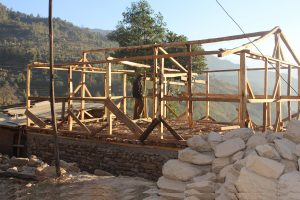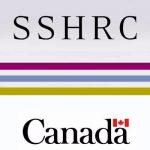UBC Associate Professor Sara Shneiderman has been awarded a three-year Partnership Development Grant from the Social Sciences and Humanities Research Council (SSHRC) to assemble an international network of scholars, academic institutions, and non-profit organizations that are currently engaged with Nepal’s reconstruction after its devastating 2015 earthquakes. The partnership aims to build research capacity in Canada and Nepal in order to investigate and improve post-disaster reconstruction in mountainous regions, especially in contexts of ongoing political transformation.
The interdisciplinary team includes co-investigators Professor Katharine Rankin (Geography, University of Toronto) and Professor Philippe Le Billon (Geography and School of Public Policy & Global Affairs, UBC), along with over a dozen collaborators from Canada, Nepal, Denmark and the U.S. from diverse fields including anthropology, art history, economics, engineering, geography, law, political science, and religious studies. Professor Shneiderman, the principal investigator, is based jointly in UBC’s Department of Anthropology, and School of Public Policy and Global Affairs/Institute of Asian Research, and is a Peter Wall Scholar.
“We all really want to support people whose lives are affected by disasters in challenging terrain such as Nepal’s, but we can only go so far with our existing knowledge,” said Sara Shneiderman. “By combining our approaches we can understand the material, social, and political aspects of their experience simultaneously.”


In 2015, Nepal was struck by its worst natural disaster in several decades caused by twin earthquakes of 7.9 and 7.3 magnitudethat left 9,000 people dead, 20,000 injured and destroyed over 600,000 homes. The devastating socio-economic and environmental impacts of this catastrophe were compounded by the country’s protracted political upheaval over the adoption of a new constitution in September 2015. These political dynamics were ongoing since a comprehensive peace agreement was signed in 2006 after a decade-long civil war between Maoist insurgents and state forces.
The project will focus on building an analytical framework for investigating the dynamics of social transformation, state-building, and subjectivity in the wake of political and environmental upheaval. Pilot research will focus on three domains of expertise critical to reconstruction: construction, finance, and law.
The team will hold the first of a series of international workshops at the Institute of Asian Research and the Peter Wall Institute for Advanced Studies at UBC in September. The workshops will bring together over 20 scholars and practitioners from across the disciplines and around the world to share their research experiences in post-conflict and post-disaster environments. Political analyst Deepak Thapa of the Kathmandu-based research institute Social Science Baha will deliver a public presentation titled “Nepal’s Prolonged Transition: End in Sight?” on September 15th at 5:30 p.m. at the C.K. Choi Building, Room 120. There will also be a community forum with Thapa and three other speakers on September 17th at 2:00 p.m. at UBC’s Robson Square campus, Room C400.
“Canada has a strong track record of responding promptly to natural disasters around the world, but can benefit from more nuanced knowledge of the ways in which natural disasters intersects with politics on the ground,” Shneiderman said. “I’m honoured to have the opportunity to facilitate exchange between our diverse partners around these pressing issues. Here in Canada, we have a great deal to learn from the in-depth experience of our Nepali colleagues.”


The Partnership Development Grant is titled, “Expertise, Labour, and Mobility in Nepal’s Post-Conflict, Post-Disaster Reconstruction: Construction, Finance and Law as Domains of Social Transformation,” and runs from 2017-2020.


